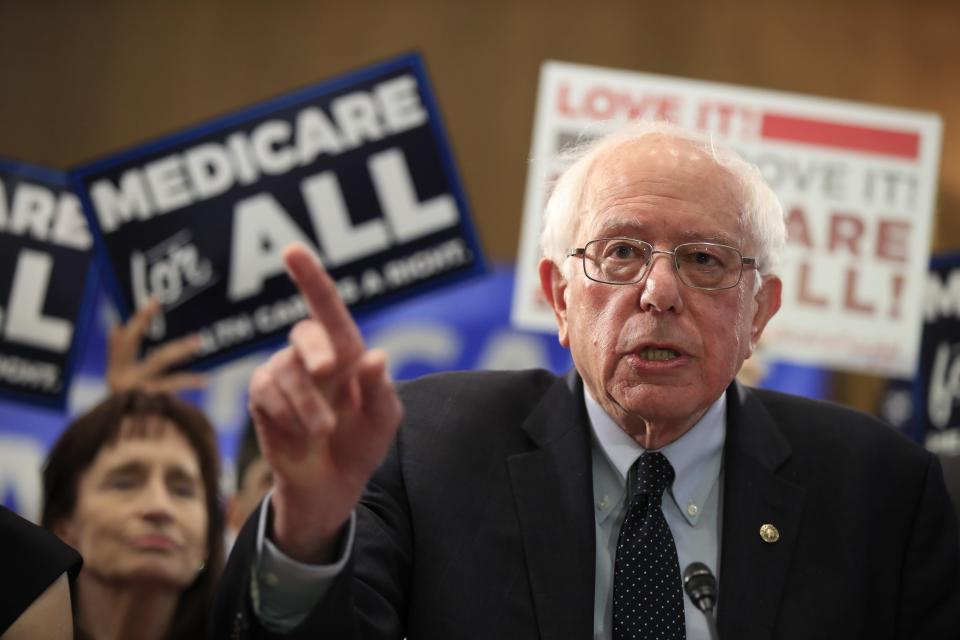CEO: One key thing needs to happen before U.S. considers universal health care
Politicians, particularly presidential candidate Bernie Sanders, are floating the idea of Medicare for All. Whether or not it can become a reality in the U.S. remains to be seen, especially as many argue over if it will be a detriment to the economy.
Ali Diab, the CEO and co-founder of Collective Health, said even beginning to consider universal health care will require changes to tax laws.
“It’s unlikely that our tax code is going to change any time soon, and that’s what fundamentally drives the fact that employers are the biggest payers of health care in this country, individually speaking,” he said on The First Trade recently. “So, until the tax code changes, we don’t think that universal health care really is going to happen.”

Sanders’ Medicare for All proposal would get rid of the private insurance system, eliminating the need for employers to provide insurance for their workers. And, as Yahoo Finance previously reported, “a Sanders-style plan would boost federal health care spending from $1.1 trillion per year to $3.5 trillion per year,” according to a Rand analysis, and require big tax hikes to fund it.
Over the first 10 years, Medicare for All would cost a total of $32.6 trillion, and by 2031, federal spending on health care would account for 12.7% of all economic activity, according to the Mercatus Center.
“In this country, employers cover the vast majority of working Americans’ — private Americans’ — health care costs,” Diab noted. “That’s sort of the elephant in the room that we don’t talk about with all the discourse around the Affordable Care Act.”
‘There had to be a better way’
Diab’s company, Collective Health, isn’t exactly a Medicare for All kind of service, but it does try to eliminate the need for an insurance company to provide employer health benefits. Collective Health uses software for employers to run the risk pool, manage risk, and “understand their costs without the need for an insurance company to do it,” Diab said.
“In our country, the employer is actually the biggest health insurer,” Diab said. “The big health insurance companies actually don’t underwrite most of the risk in this country, and self-insurance just means the employer pays for their employees’ costs out of pocket. And that’s what the vast majority of working Americans are on, which is a self-insured plan, where the employer doesn’t actually have an insurance company underwrite the risk.”

Diab started his company after he was diagnosed with a small intestinal volvulus six years ago, which resulted in most of his small intestine being removed. He spent over a month in the hospital, which led to a $500,000 bill.
“I got into this literally getting hit in the stomach,” Diab explained, noting that he has a Platinum PPO technology employer plan. “I came home thinking everything would be covered and then was very, very surprised to discover that more than half of my billed charges were denied, and that’s what spurred my interest in this industry.
“And I thought there had to be a better way to get people to understand and navigate and access health in this country, and that’s why Collective Health got started.”
READ MORE:
America's 'inefficient' health care system is driving our fiscal instability: Powell
GoFundMe CEO: The U.S. health care system 'is really broken'
Obamacare was revolutionary for women's health. The progress is now in danger.
Follow Yahoo Finance on Twitter, Facebook, Instagram, Flipboard, SmartNews, LinkedIn, YouTube, and reddit.

 Yahoo Finance
Yahoo Finance 